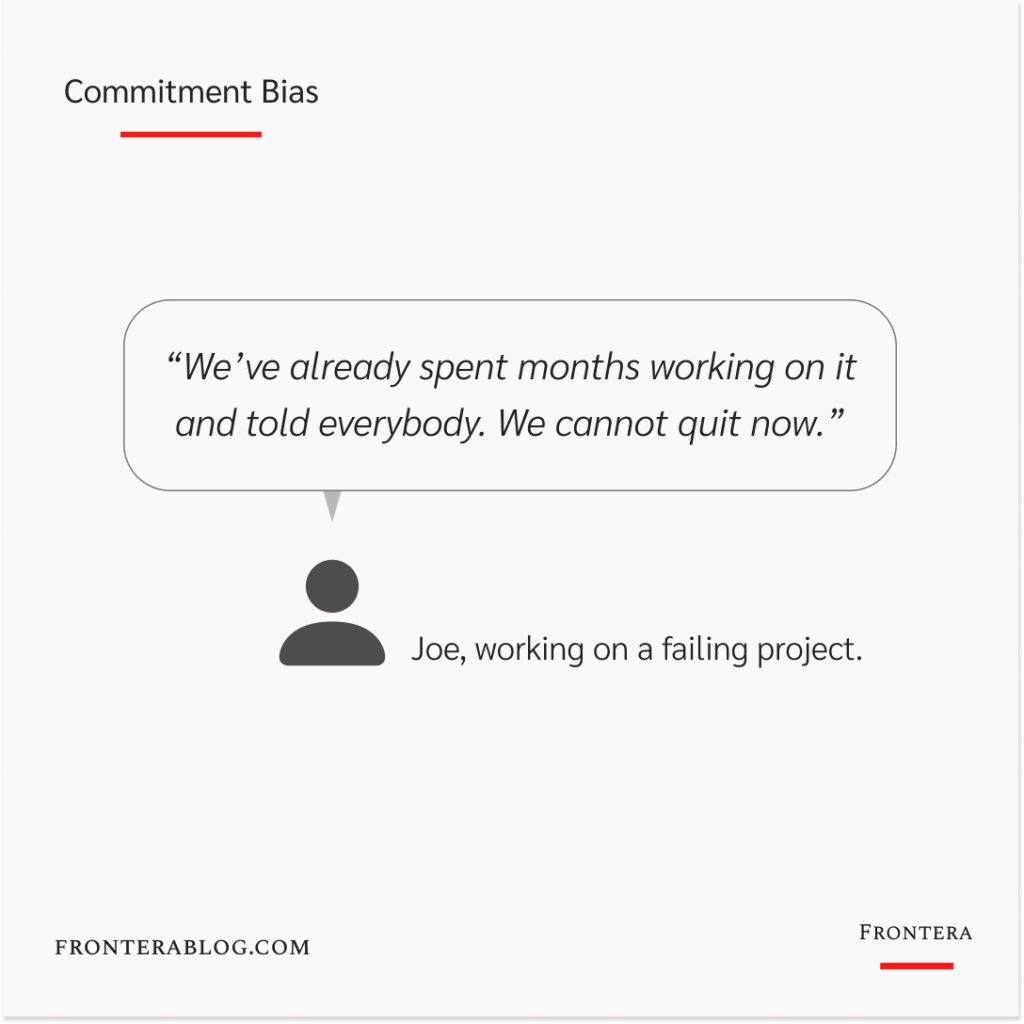Why is ending a long relationship so hard?
Even if you know it’s not good for you anymore, it’s still difficult to end it.
The answer is commitment.
Your friends know your partner, you have photos on Instagram together and you have shared how happy you were.
So the imaginary stakes of a breakup are high.
Because your mind tries to be consistent with your past actions and words. Especially since they were public.
And this is called commitment bias.

You can see it everywhere.
People get stuck with ideas, investments, or business decisions that don’t make sense anymore.
Only because they had committed to them with their money, effort, or words.
So how can you avoid it, or even benefit from it?
Four ways to prevent and take advantage of commitment bias:
1. Become aware
As always, the first step to avoiding it is awareness.
Become aware that every decision is a mini-commitment.
Sometimes it’s what you tell your friends; sometimes your actions.
How much you loved your company or role before (and what you told your friends) doesn’t matter if you are not satisfied today.
How much you invested in a stock doesn’t matter if the business is not growing anymore.
So when something is not going right, rethink the situation to see if you’re driven by a past commitment.
2. Be like water
The second step is becoming flexible. Your identity should be fluid.
Don’t attach yourself to your job, your ideology, or your past decisions.
Your opinions and interests can change.
You can believe a corporate career is best for you today. But you might change your mind and become an entrepreneur tomorrow.
Never get stuck with an identity that doesn’t represent you anymore.
Be committed to your values. But be flexible with the rest.
“You must be shapeless, formless, like water. When you pour water in a cup, it becomes the cup. When you pour water in a teapot, it becomes the teapot. Water can drip and it can crash. Become like water my friend.“
Bruce Lee
3. Use it as fuel
One positive side of commitment bias is using it as fuel toward your goals.
If you want to quit smoking, tell your friends you’ve stopped smoking.
If you want to get fit, share publicly that you’re starting a diet and a new training program. Or, even better, share your progress along the journey.
Increase the commitment.
Your mind will do everything it can to stay consistent with what you share with others.
4. Use it to persuade
Why do all streaming services offer free (or cheap) trials?
Because they want you to commit.
Even though the commitment is small, they know your mind will tend to be consistent with your previous actions. So you’re likely to stay as their customer after the trial.
But you don’t need to sell something to use it. Life is a persuasion game.
If you want to date somebody, ask for a small commitment first. Drinking coffee is easier to accept than dinner.
If you write a post or an email, keep your first sentences short.
After the reader makes a small commitment by reading your first sentences, they’re likely to continue reading —and yes, I do it in every article including this one.
You have committed (and will commit) to many things in life.
Become aware of your commitments in different forms: time, effort, money, and words.
Don’t let your mind trick you because of your past commitments. But benefit from this bias whenever you can.
Enjoyed this article?
Then you’ll love the How Brands Win Newsletter.
Get the “5 Mental Models to Differentiate Your Business” guide when you join. It’s free.
